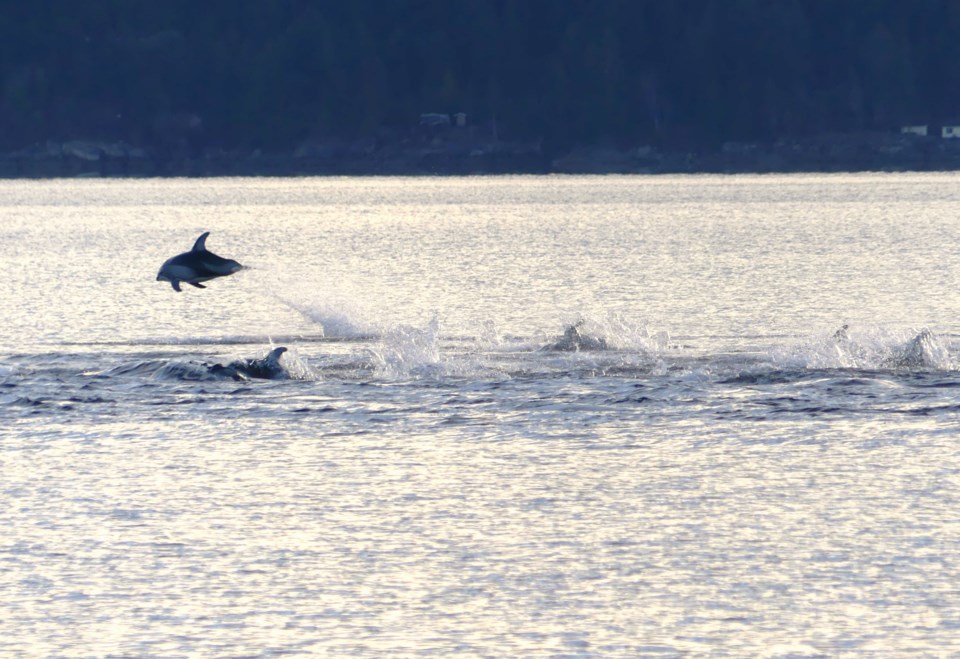The group Wild Ocean Whale Society (WOWs) has been receiving reports of a plethora of whale and dolphin sightings and activity in the waters around the qathet region in December.
According to WOWs, a guide with Aboriginal Journeys, Garry Henkel, spotted high-flying Pacific white-sided dolphins in the Nodales Channel in mid-December.
"These dolphins can be exciting to watch when they travel quickly or when they leap out of the water up to four-metres in the air," stated WOWs volunteer Ivan Ng in an online post about the recent sightings. "At other times, they may be swimming slowly and conserving their energy. Pacific white-sided dolphins may travel in pods as small as a dozen or in large pods that may include hundreds of individuals."
There were also many humpback whale sightings reported to WOWs in upper Georgia Strait and two were observed west of Salt Spring Island in Stuart Channel.
"Some of the humpbacks were observed to be breaching and on one occasion, the humpback whales were doing tail slaps," said Ng in his report.
WOWs is a nonprofit marine conservation society based in the qathet region since 2010 and founded by Susan MacKay. The group works to, "highlight the whales, dolphins and porpoises of the BC coast, and to raise public awareness, respect and enthusiasm for their protection and welfare," according to its mission statement.
The Federal Government (DFO) issued the following statement about watching orca in the wild: “Vessels must stay 400-metres away and may not position a vessel in the path of killer whales in southern BC coastal waters between Campbell River and just north of Ucluelet until May 31, 2025.”
For all other areas of BC outside of the area indicated above, a minimum distance of 200-metres must be maintained when viewing orca or while viewing any cetaceans that are resting or with a calf.
Join the Peak’s email list for the top headlines right in your inbox Monday to Friday.




